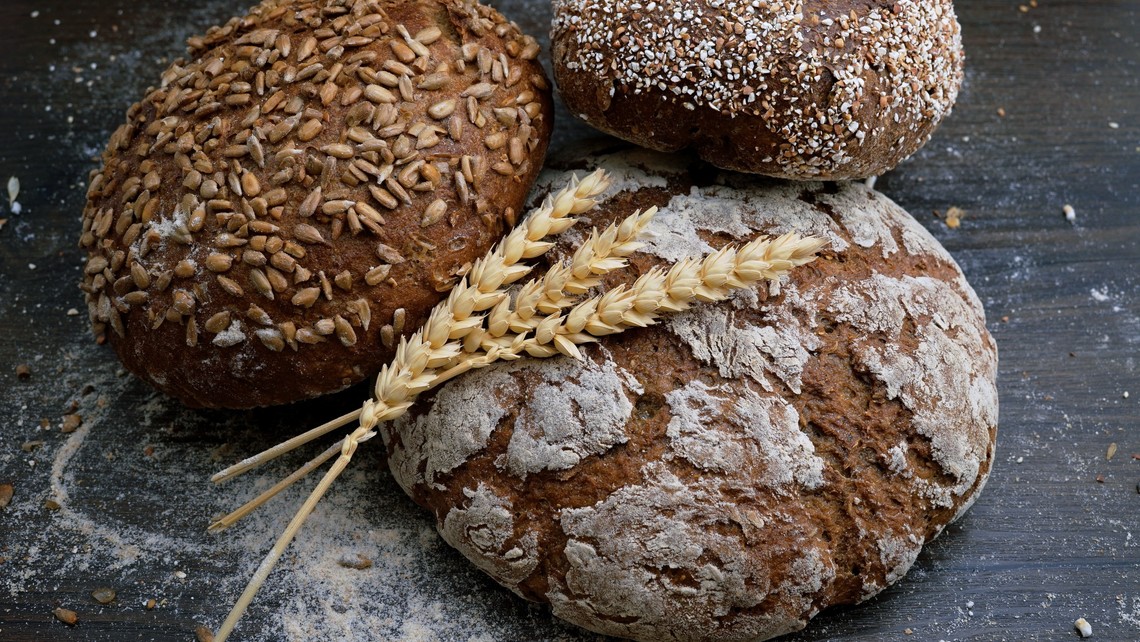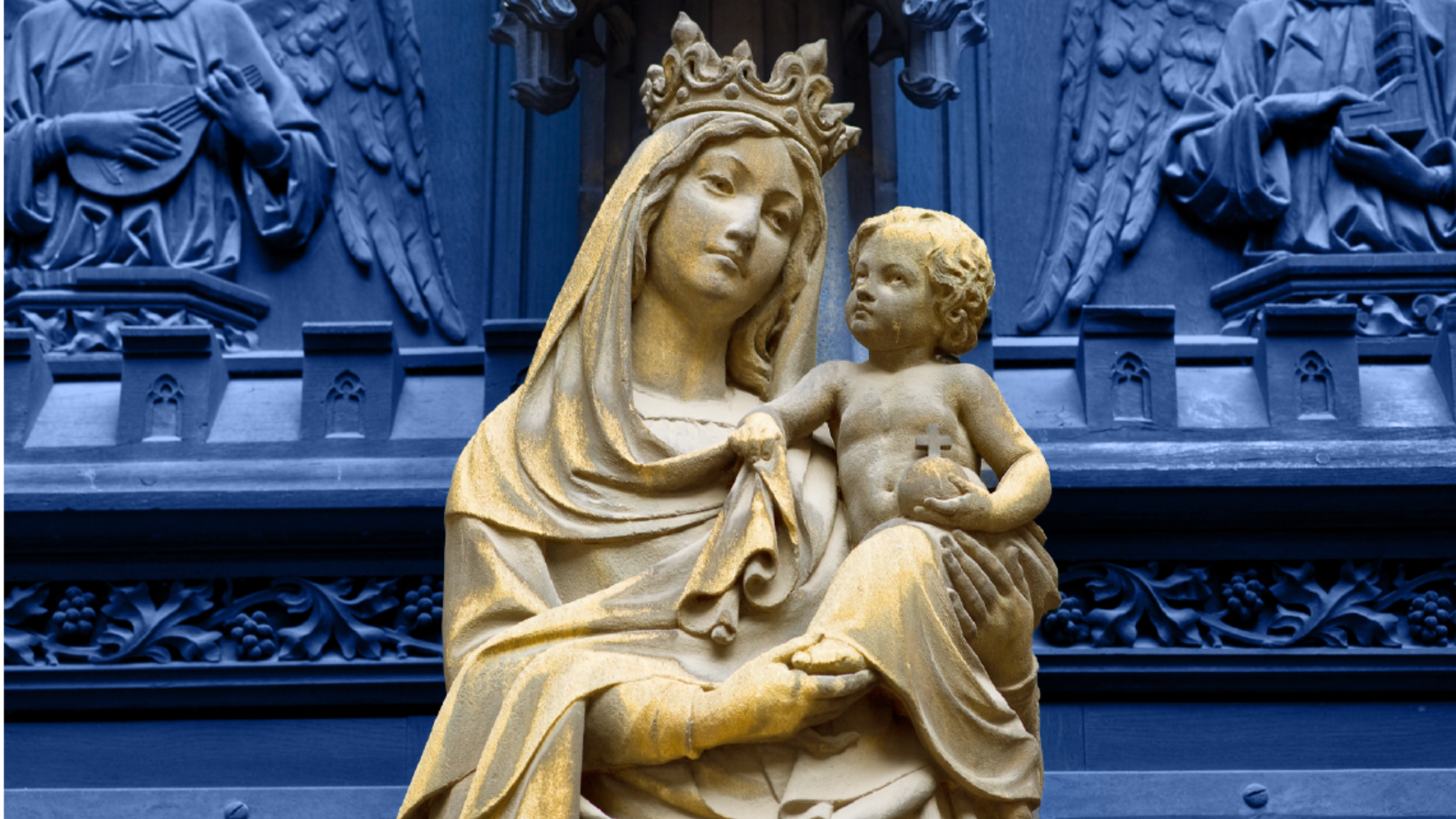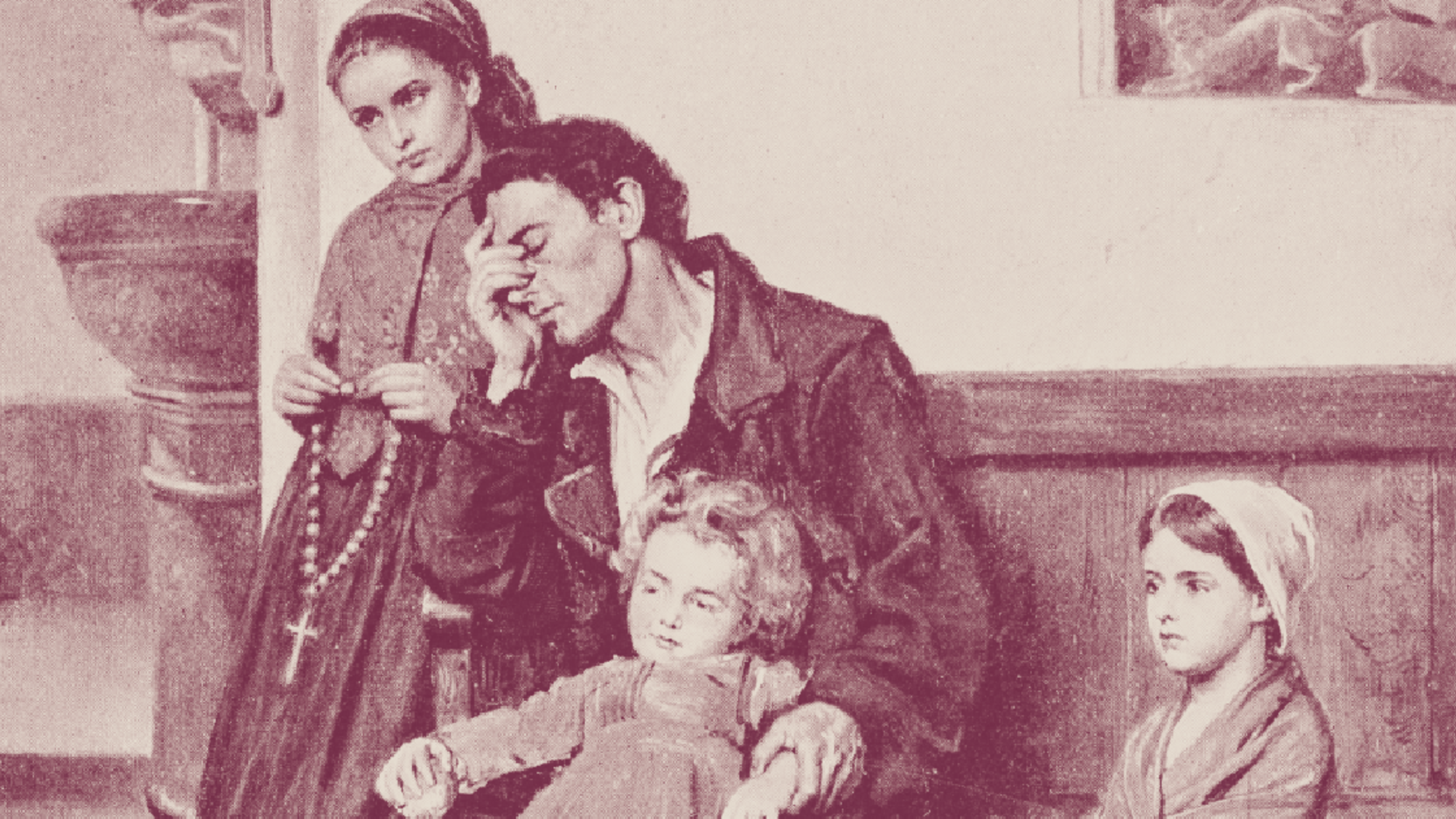
Why Prayer and Fasting?
Prayer and fasting are two things you’ll hear plenty about throughout the Lent.
Since this is the time leading up to Easter, we’re focused on atonement for our sins and the great love with which God gave His only Son to suffer and die for our salvation.
Casting Away Sin
I couldn’t stop “treating” myself.
For me, a stressful day warranted a drive-thru cup of coffee, a new book, or an evening movie rental to relax and unwind. Suddenly, cash that should have been dedicated to putting meals on the table and paying for my children’s tuition was going toward my habit.
It didn’t exactly feel harmful or detrimental — after all, the purchases were never more than ten or twenty dollars — but it added up. It hit me one day during Mass that every penny I had spent on coffee that week could have easily gone into the collection and put towards a much better cause.
Now, you might argue that my daily treats weren’t exactly sinful; however, I was using them as band-aids to quell my anxiety, when instead I should have been turning to God in prayer.
Jesus tells us that there are certain demons that can only be driven out by prayer and fasting. We all have habitual sins that need to be cast out of our lives. It shouldn’t be difficult to figure out what your “demons” are: Just recall which faulty actions you find yourself repeating month after month in the confessional.
When I added up my “harmless spending,” it came to about $500 per month. I was appalled, and decided to commit to a no-spend month, during which I “fasted” from spending. I spent money on nothing outside of utilities, mortgage, and essential food. I shifted my focus to my relationship with God as a solution to stress and anxiety.
It took three months of this “fasting,” but ever since, I’ve been a shining example of frugality and intentional spending.
That was five years ago.
Human beings are the only members of God’s creation with the ability and capability to practice self-denial. It goes against our natural inclination to deny ourselves — especially when it comes to nourishment — and thus, it allows us to renounce ourselves as the center of our focus and, instead, turn the spotlight toward Jesus.
Whether you turn to alcohol, food, shopping, physical violence, or self-destructive tendencies during times of stress, sadness, or anxiety — fasting will compel you to turn your focus to God and appeal to Him instead for comfort and guidance.
Prayer and My Relationship with God
Saint Therese of Lisieux describes prayer this way:
For me, prayer is a surge of the heart... a simple look toward Heaven; it is a cry of recognition and love; embracing both trial and joy.” ~ Story of a Soul.
Just as you would exclaim in delight, frustration, anger, grief, or joy to a parent, a spouse, or a best friend, your prayers to God both reinforce and arise from your relationship with Him.
Because we’re human, we tend to complicate what is actually quite simple — and prayer is definitely simple.
Love is prayer’s foundation; because God so loves you, He delights in your time spent conversing with Him. You don’t need long, complicated prayers; your words can be as simple as “Thank you Lord!” or “God, help me!” or “I am listening.” God gives unconditional love, and to spend time in prayer, cultivating your relationship with Him, is to receive this love.
What is the Point of Fasting?
Fasting provides the body-soul connection that deepens your relationship with God and puts you more into His presence.
Just as your body requires physical nourishment in order to live, your soul requires spiritual nourishment — the Word of God. Going without food will quickly remind you that God has given you all of the good things in your life. It’s humbling to experience how weak your body becomes when you skip even one meal.
Similarly, when you neglect your spiritual nourishment — immersing yourself in God’s Word — you become weak and soon recognize how dependent you are upon God.
That’s how fasting turns your focus to God.
Christ Himself is “the bread of life” (John 6:48). Your relationship with God is deeply improved when you temporarily deny yourself sustenance and focus instead on your spiritual food.
And finally, minimizing your food intake for a day can help you to focus on gratitude: You become most grateful for that which you’ve been denied.
What are the “Rules” about Fasting and Abstinence?
Catholics, beginning at age 14, are obligated to abstain from meat on Ash Wednesday, Good Friday, and every Friday during Lent.
On both Ash Wednesday and Good Friday, adults (age 18 to 59) must fast — this means eating just two smaller meals and one full meal for the whole day.
Today’s Catholics often choose to fast on both Wednesdays and Fridays throughout Lent. The Wednesday fast is associated with Judas’ betrayal of Jesus, which occurred on a Wednesday. It serves as a reminder of how often we betray Jesus through our choices, and becomes part of our atonement for those sins.
As for Fridays, Jesus died on a Friday, and the Friday fast serves as a way to honor His sacrifice by refraining from consuming blood (meat) on that particular day.
A person who is fasting should eat no more than one full meal plus two smaller meals which, together, do not equal a full meal. As far as abstaining from meat, though eating fish on Fridays is acceptable, eating only vegetables will certainly suffice — especially since, nowadays, fish and seafood seem to have become a rather expensive luxury.
How Can I Make the Most of My Prayer and Fasting During Lent?
I highly recommend that you take time this Lent to select one of your bad habits — the one you would most like to “cast out” — and replace it with a virtue.
You can begin by praying for that particular virtue, and dedicating effort to growing in that virtue. Fasting is a means of focusing on the virtue you’re trying to develop, and curbing the bad habit you’re trying to get rid of.
Think of your prayer and fasting as your “spiritual warrior training.”
Last week, we talked about “living the Rosary.” This week, as you focus on the Mysteries, perhaps you will add a small prayer request for strength and commitment to your “bad habit removal,” and try to recognize how Jesus was an example of your chosen virtue.
Learn more about the Life of Virtue
If you’re committing to praying a daily Rosary this Lent, please let us know!
Follow us on Facebook and Instagram, and join the growing Rosary Crusade community. Go to our Facebook page to share pictures of your rosary, your prayer corner, or to post what you’re doing to stick with your prayerful commitment. May this Lent and our community both inspire you to continue praying a daily Rosary—even after the Lenten season has passed!




